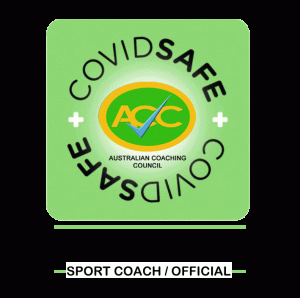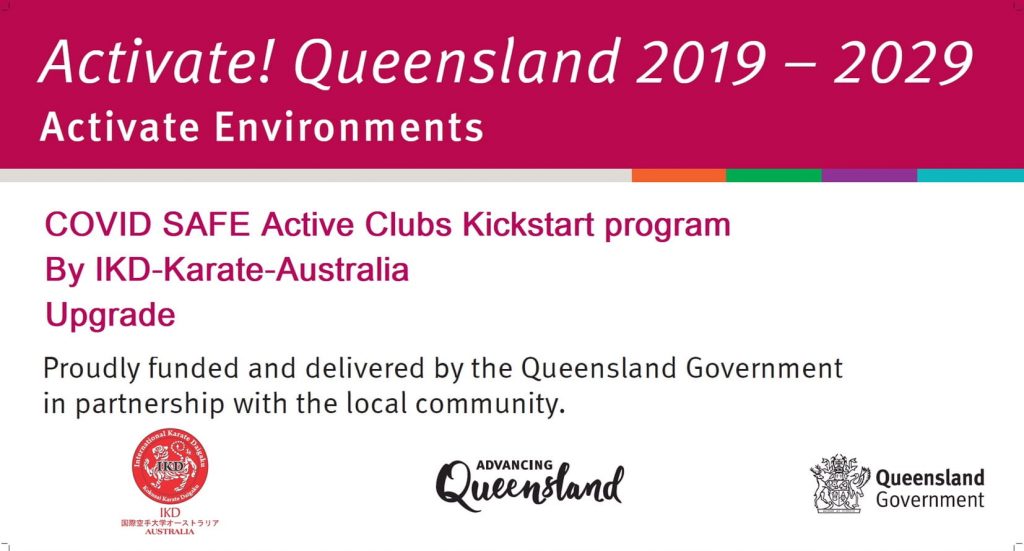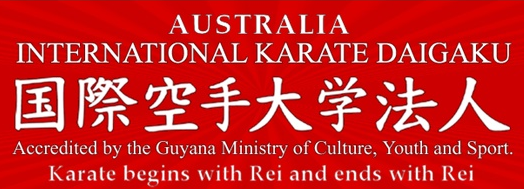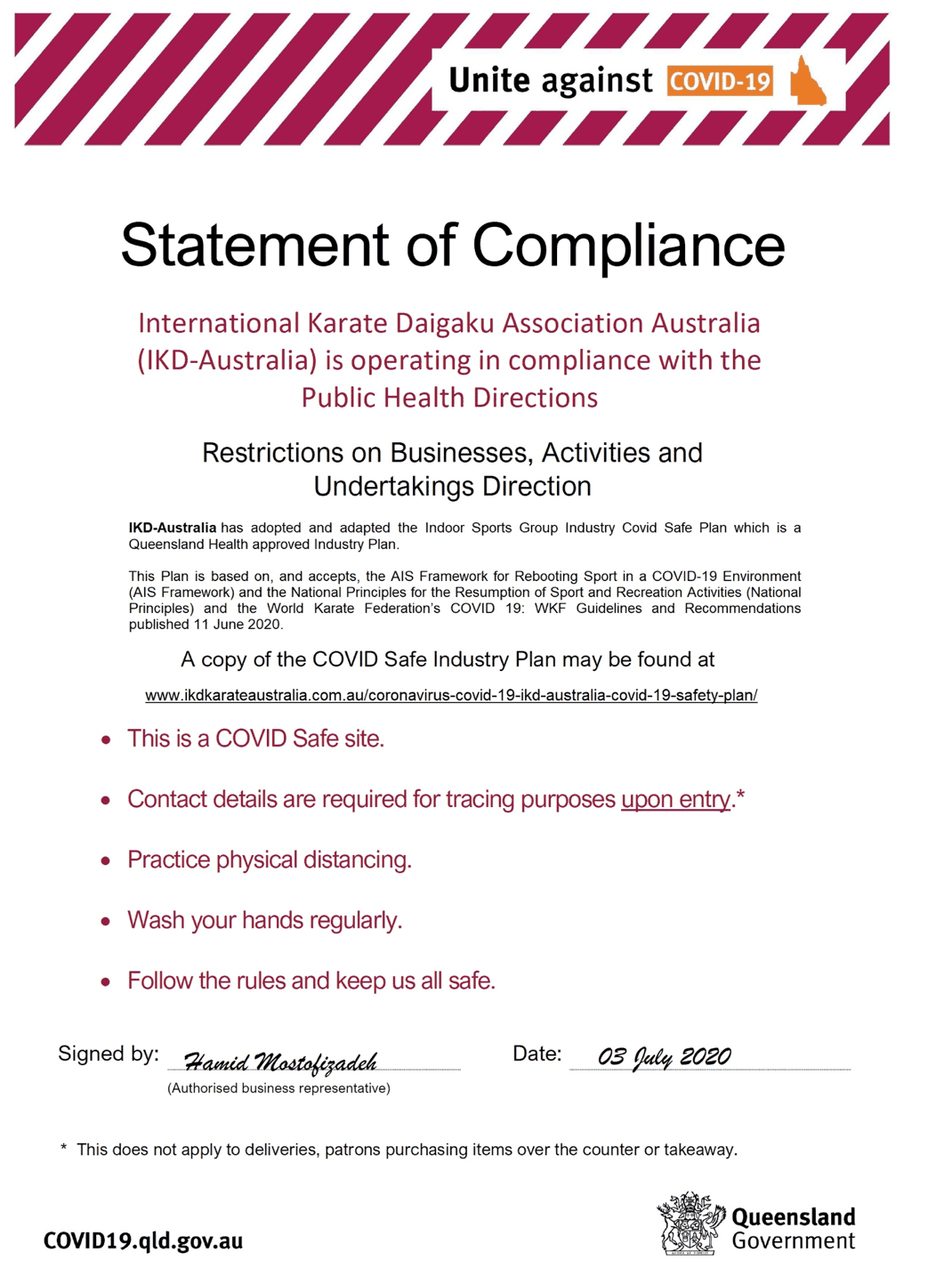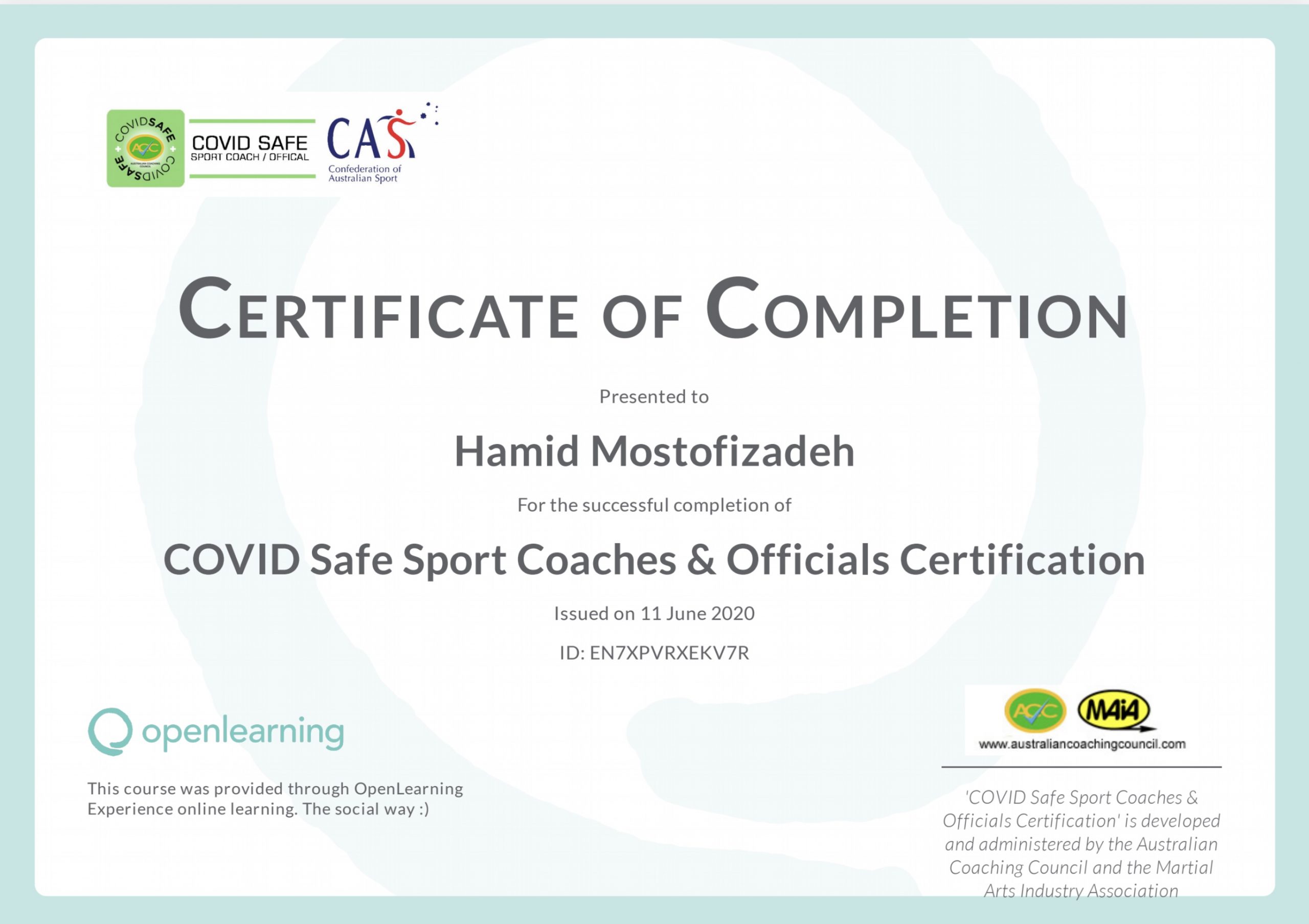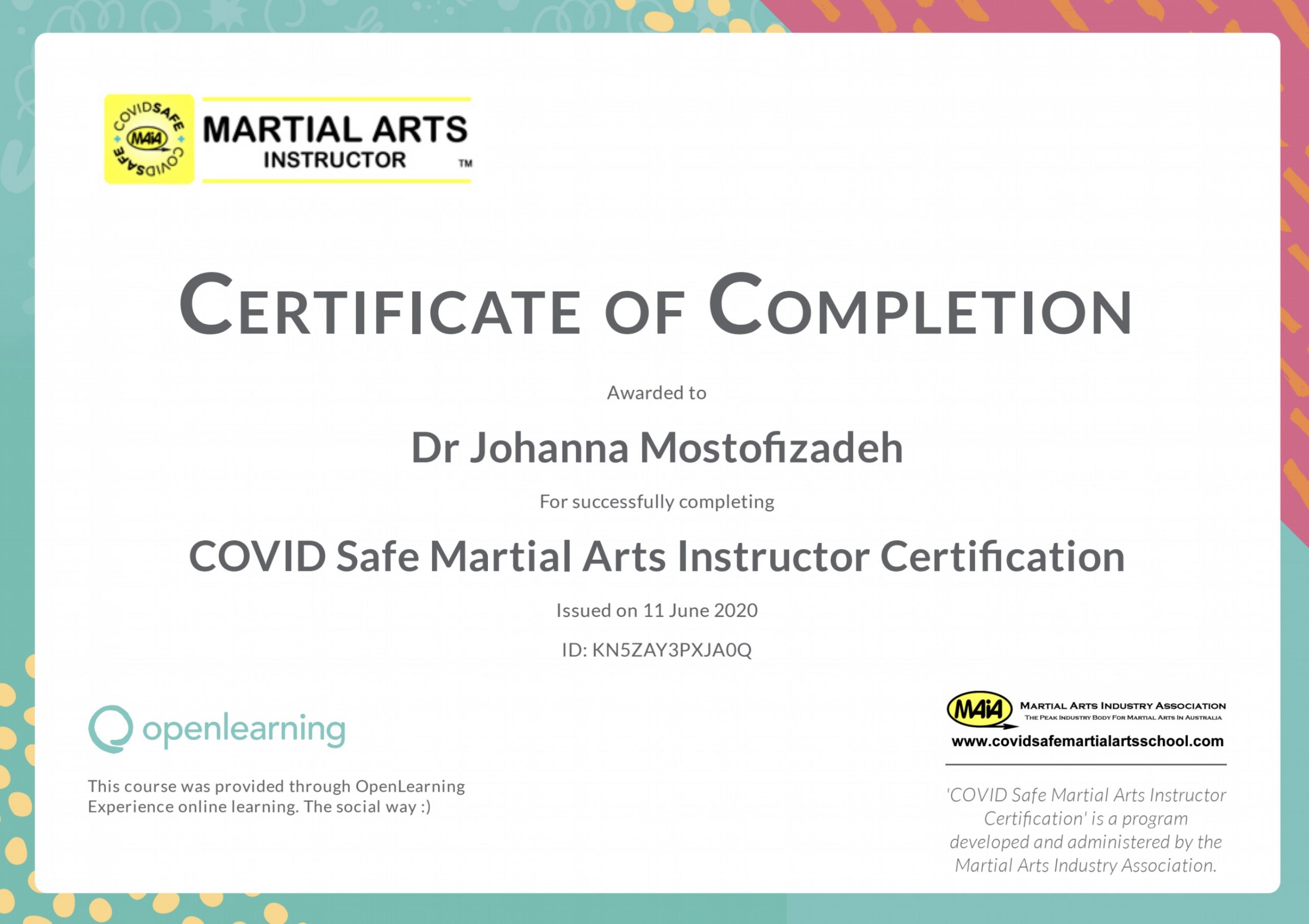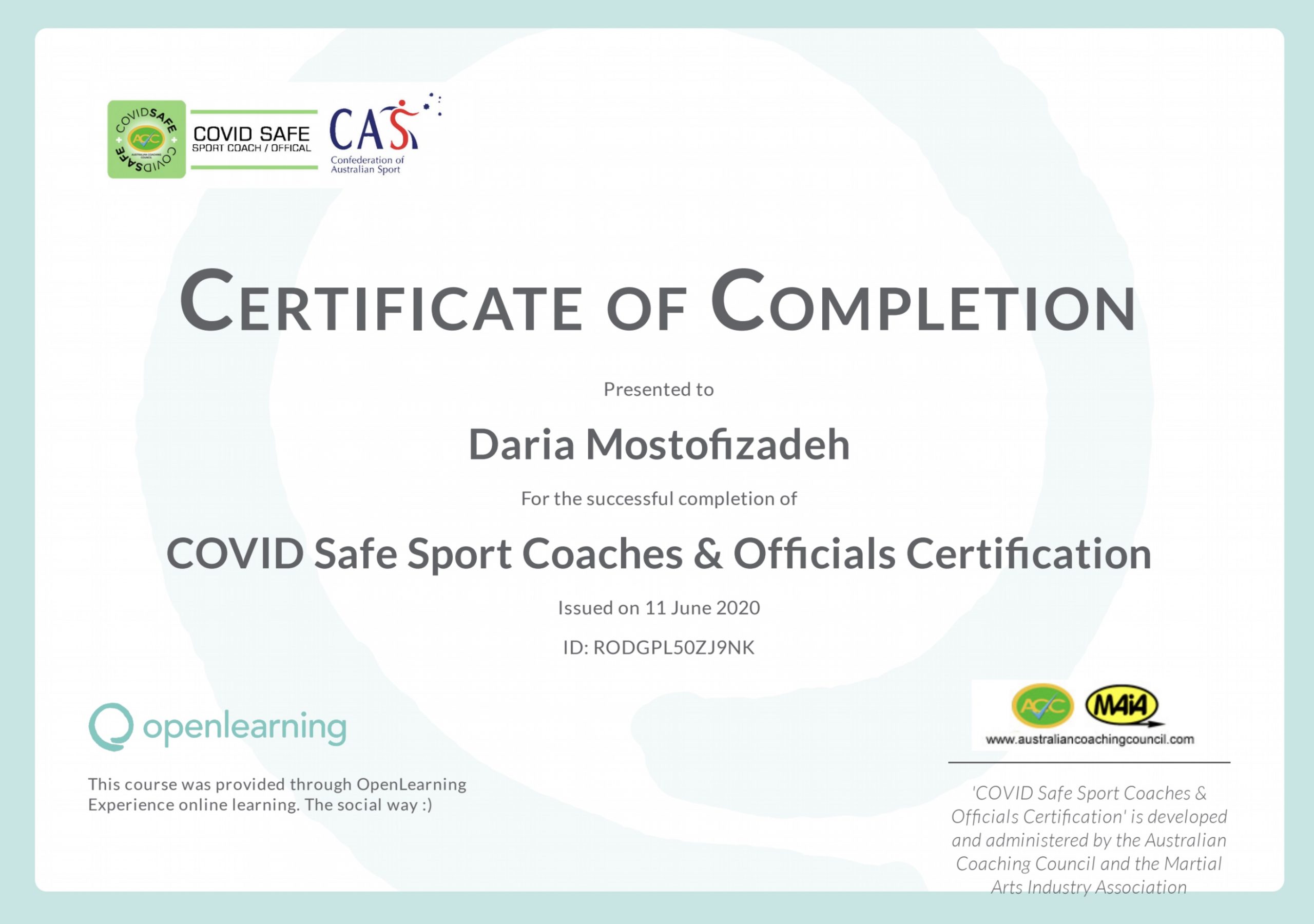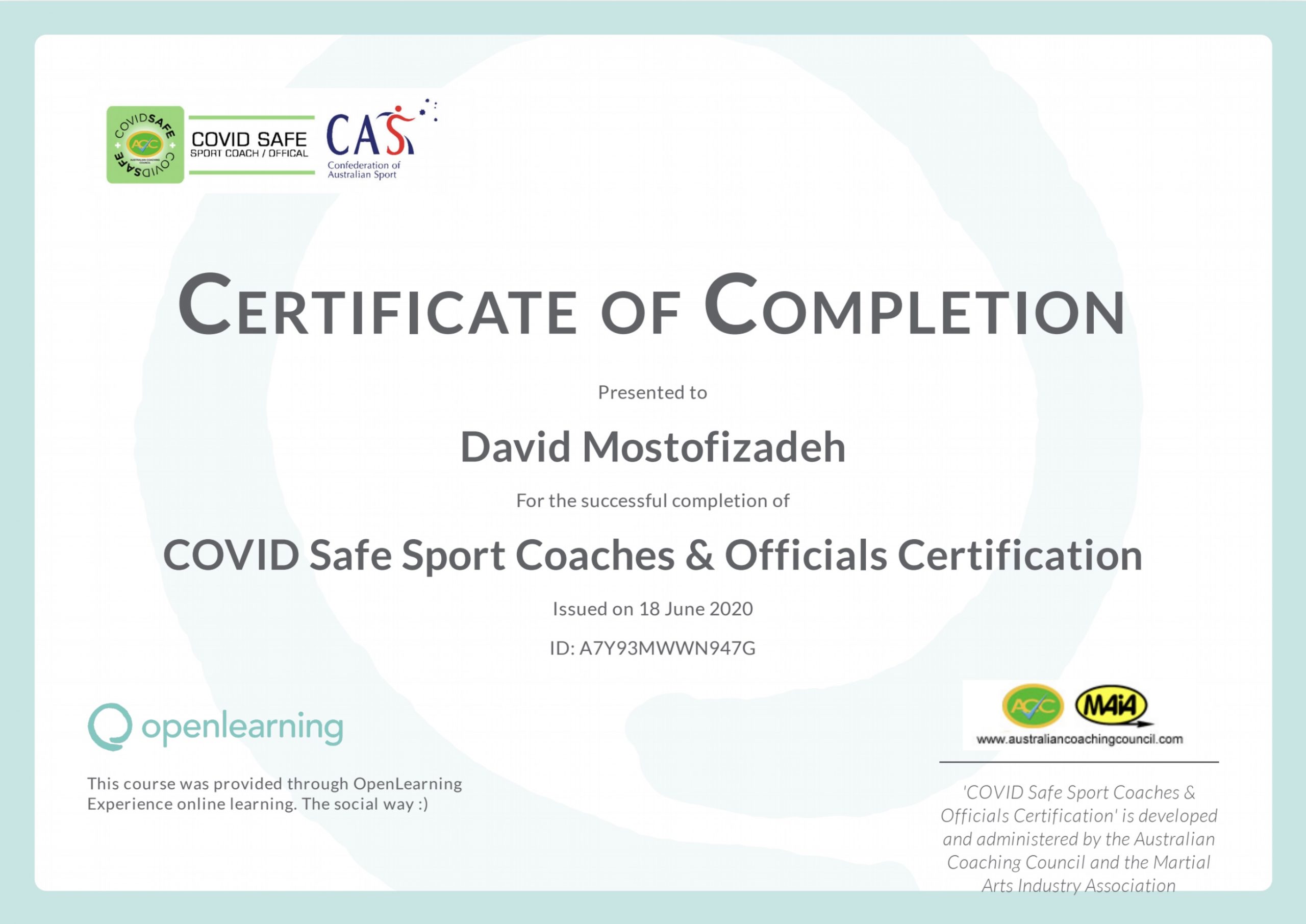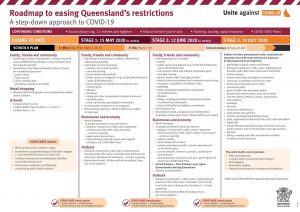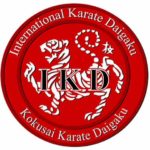COVID 19 Safety Plan & Restrictions
July 2020
| Association/Club | IKD-Karate-AUSTRALIA |
| Ground Location | 11 Red Hill Road |
| Club Facility Location | Gympie, Queensland |
| Club President/Association CEO | Hamid Mostofizadeh |
| Contact Email | president@ikdkarateaustralia.com.au |
| Hamid Mostofizadeh is responsible for this document | |
Preamble
International Karate Daigaku Association Australia Inc. (IKD-Australia) has adopted and adapted the Indoor Sports Group Industry Covid Safe Plan which is a Queensland Health approved Industry Plan. The following few pages (3-5) provide a brief background to Industry Plans and the Indoor Sports Group approved Plan. The remainder of the document is the IKD-Australia’s Covid Safe Plan.
|
Representatives of the following activities were involved in the development of this plan.
Any organisation can adopt this Industry COVID Safe Plan if appropriate for their activity – regardless of membership of an Industry body or being involved in the development. |
This plan is to guide the following sports on a return to play: Karate Taekwondo Basketball Boxing Darts Gymnastics Handball Ice Skating Judo Badminton Association Billiards & Snooker Fencing Ice Racing Indoor Bowls Squash Weightlifting Skate Queensland Sport Climbing Table Tennis Tenpin Bowling Volleyball |
| Date | Version 5 – July 2020 |
INDUSTRY COVID SAFE PLAN
Purpose
As per the information released by the Queensland Government on 25 May 2020 Industry COVID Safe Plans will be developed by industry for industry.
The purpose of the plans are to help businesses and organisations in your industry show the health authorities and the community that they operate safely and can service more customers than outlined in the roadmap.
Interaction Between Approved Covid Safe Industry Plans
If there are multiple activities being undertaken at a venue/facility (for example – dining, sports, approved training courses, fitness or recreational), several approved industry plans may apply. If this is the case, the following will apply:
- Where there is clear separation between the activities (e.g. dining and sport) the relevant plan applies to the relevant area. A COVID Safe Statement of Compliance for the appropriate plan will be displayed in each area. Providers that have opted-in to comply with the relevant Industry COVID Safe Plan in stage 2 may continue to display the Statement of Compliance previously
- Where the activities cross over (for example amenities, entry/exits, carparks):
- Where possible these areas of cross over will be minimised. Such as designating a particular entry, exit, amenities and carpark for each
- Where the cross over cannot be minimised, a decision will be made as to which plan takes priority in which common area and will be
- For example, the entry, exit, carpark and amenities may be common to both activities and will be managed under the dining
- In this case the entity responsible for the dining plan will ensure these areas are appropriately managed and the separate groups from the dining and sport activity will not intermingle.
Where a business is operating alongside of a not-for-profit community group, the business would normally take responsibility for managing the shared or common areas.
The approved Industry plans are located at www.COVID19.qld.gov.au.
Overview
Contact Sports and Non- Contact Sports make up of Indoor Sports Group:
Primarily our non- contact sports participants often do not face each other and operate easily with social distancing compliance in large open areas.
Contact Sports – participants do face each other, and incidental and full contact does occur with participants.
Indoor Sports operating in school environments (community sport) will return when school restrictions allow, will be required to adhere to the Department of Education’s operating guidelines for community use of schools.
Stage 3 – allows for the resumption of contact in play areas during normal competition. Social distancing in all other zones.
Each individual sport will complete a sport specific COVID safe operational plan to meet Chief Health Officer requirements and noting points approved and outlined in this Indoor Sport submission.
1. Introduction
The purpose of this COVID-19 Safety Plan (Plan) is to provide an overarching plan for the implementation and management of procedures by IKD-AUSTRALIA to support IKD-AUSTRALIA and its members and participants in the staged resumption of community sport and club activities.
The arrangements set out in this Plan are intended to prevent the transmission of COVID-19 among members, participants, coaches, officials, administrators/volunteers, visitors, families, and the broader community. The Plan provides the framework to govern the general operation of the IKD-AUSTRALIA, any facilities it controls, the playing/training behaviour of all members and participants and the monitoring and reporting of the health of attendees at IKD-AUSTRALIA facilities.
This Plan includes, but is not limited to, the conduct of:
- staged training and competition activities (sport operations); and
- facility management and supporting operations (facility operations).
At all times the Plan is subject to all regulations, guidelines and directions of government and public health authorities.
2. Key Principles (Return to Play Considerations)
This Plan is based on, and accepts, the AIS Framework for Rebooting Sport in a COVID-19 Environment (AIS Framework) and the National Principles for the Resumption of Sport and Recreation Activities (National Principles) and the World Karate Federation’s COVID 19: WKF Guidelines and Recommendations published 11 June 2020.
This staged approach is in line with directions from the Queensland Government’s Chief Health Officer, specifically Queensland’s Roadmap to easing restrictions.
The Plan also accepts as key principles that:
- The health and safety of members, participants, coaches, officials, administrators/volunteers, visitors, families and the broader community is the number one priority;
- Members, participants, coaches, officials, administrators/volunteers, families and the broader community need to be engaged and briefed on IKD-AUSTRALIA’s return to sport plans;
- Facilities are assessed and appropriate plans are developed to accommodate upgraded hygiene protocols, physical distancing and other measures to mitigate the risk of transmission of COVID-19;
- Training cannot resume until the arrangements for sport operations and facility operations are finalised and approved, if necessary; and
- At every stage of the return to sport process IKD-AUSTRALIA must consider and apply all applicable State and Territory Government and local restrictions and regulations. IKD-AUSTRALIA needs to be prepared for any localised outbreak at our facilities, within our competitions or in the local community.
3. Responsibilities under this Plan
IKD-AUSTRALIA retains the overall responsibility for the effective management and implementation of the return to sport activities and operations outlined in this Plan for activities directly managed by the IKD-AUSTRALIA.
The Executive Committee of IKD-AUSTRALIA is responsible for:
- Approving the Plan and overseeing the implementation of the arrangements in the Plan for IKD-AUSTRALIA; and
- Revising the Plan as required, ensuring it reflects up to date information from government and public health officials and seeking approval from Queensland Health regarding amendments.
The Executive Committee has appointed the following person as the IKD-AUSTRALIA COVID-19 Safety Coordinator to execute the delivery of the Plan and to act as a point of contact for information relating to this Plan:
| Name | Hamid Mostofizadeh |
| Contact Email | president@ikdkarateaustralia.com.au |
| Contact Number | 0403 103 076 |
IKD-AUSTRALIA expects all members, participants, coaches, officials, administrative staff and volunteers to:
- Comply with the health directions of government and public health authorities as issued from time to time;
- Understand and act in accordance with this Plan as amended from time to time;
- Comply with any testing and precautionary measures implemented by IKD-AUSTRALIA;
- Act with honesty and integrity in regard to the state of their personal health and any potential symptoms; and
- Monitor their health and take a cautious approach to self-isolation and reporting of potential symptoms.
4. Return to Sport Arrangements
As at 22nd of March 2020, participants are training at Level A (Stage 1) of the AIS Framework.
This Plan outlines specific sport requirements that the IKD-AUSTRALIA will implement for Level B (Stage 2) and Level C (Stage 3) of the Queensland Roadmap to easing restrictions. The Roadmap can be viewed at the following website:
https://www.covid19.qld.gov.au/government-actions/roadmap-to-easing-queenslands-restrictions
IKD-AUSTRALIA will transition to the training activity and facility use as outlined in Level B of the AIS Framework and the training/competition activities and facility use outlined in Level C of the AIS Framework when permitted under local restrictions and regulations.
4.1 AIS Framework Arrangements
The protocols for conducting sport operations and facility operations under Level B and Level C of the AIS Framework are set out in the Appendix.
4.2 Roadmap to a COVID Safe Australia
IKD-AUSTRALIA will also comply with the Australian government’s Roadmap to a COVIDSafe Australia, which places limits on the type of activity that can be conducted and the number of people who can gather at facilities, notwithstanding the activities permitted by the AIS Framework (see below).
| AIS Activities |
Level A: Stage 1 Training in no more than pairs. Physical distancing required. |
Level B: Stage 2 Indoor/outdoor activity. Training in small groups up to 10. Physical distancing required. |
Level C: Stage 3 Full sporting activity (training and competition) allowed. No restriction on numbers. Contact allowed. |
||
| Roadmap Activities |
N/A Training at home From 22nd March 2020 |
Step 1: No indoor activity. Outdoor sport (up to 10 people) consistent with AIS Framework. From 15th May 2020 |
Step 2: Indoor/outdoor sport up to 20 people. Physical distancing (density 4m2). Start from 12th of June 2020 |
Step 3: Venues allowed to operate with up to 100 people with physical distancing. Community sport expansion to be considered consistent with AIS Framework. |
Further steps TBC Start from 10th of July 2020 |
5. Recovery
When public health officials determine that the outbreak has ended in the local community, IKD-AUSTRALIA will consult with relevant authorities to identify criteria for scaling back its COVID-19 prevention actions. IKD-AUSTRALIA will also consider which protocols can remain to optimise good public and participant health.
At this time the Executive Committee of IKD-AUSTRALIA will consult with key stakeholders to review the delivery of its return to sport arrangements and use feedback to improve organisational plans and systems.
Appendix: Outline of Return to Sport Arrangements
[Note – examples provided in this Appendix relate to Club operations. Adjustments may be made for the return to sport arrangements of Associations]
The IKD-AUSTRALIA strongly urges all of its Members to adopt (and adapt as necessary) these Return to Support Arrangements for use in their own karate training and competition activities.
Part 1 – Sport Operations
| Area |
Stage 2 From 15th May 2020 |
Stage 3 noon from 3rd of July 2020 |
| Approvals |
The organisation must obtain the following approvals to allow a return to training in Stage 2:
|
Organisations must ensure the relevant approvals are in place to return to contact training and competition in particular with the relevant land owner/venue operator. |
| Training Processes |
[Club to detail specifics of training processes. Should cover: · Club to emphasise AIS Framework principle of “Get in, train, get out” – arrive ready to train. · Length and scheduling of training sessions to reduce overlap. · Clearly outline nature of training permitted (e.g. small groups to train and for team meetings, equipment/skill drills able to be used, certain sport activities not permitted during Level B training, no contact including high fives/hand shaking, no socialising or group meals). · Defined training areas for each training group, maintaining base density requirement of 4 square metres per person and physical distancing (>1.5 metres). · Sanitising requirements, including use of sanitising stations. · Treatment of shared equipment (e.g. sanitise equipment before, during, after sessions) and use of such equipment to be limited. · No sharing of personal equipment. · Personal hygiene encouraged (e.g. wash hands prior to training, no spitting or coughing). · Guidance for travel arrangements (e.g. physical distancing on public transport, limit car pool/taxi/Uber use). · Training attendance register kept]. |
[Club to detail specifics of training/competition processes. Should cover: · AIS Framework principles – full sporting activity that can be conducted in groups of any size (subject to COVIDSafe Roadmap) including full contact. · For larger team sports, consider maintaining some small group separation at training. · Limit unnecessary social gatherings. · Clearly outline nature of training permitted. · Access to treatment from support staff. · Sanitising requirements continue from Level B. · Treatment of shared equipment continues from Level B. · Personal hygiene encouraged (e.g. wash hands prior to training, no spitting or coughing). · Training/playing attendance register kept]. |
| Personal health |
[Club to detail specifics of personal health protocols. Should cover: · Graded return to sport to avoid injury. · Advice to players, coaches, volunteers to not attend if unwell (including any signs/symptoms of cold, flu, COVID-19 or other illness). · Washing of hands prior to, during and after training and use of hand sanitiser where available. · Avoid physical greetings (i.e. hand shaking, high fives etc.). · Avoid coughing, clearing nose, spitting etc. · Launder own training uniform and wash personal equipment]. |
[Club to detail specifics of personal health protocols. Should cover: · Requirements continue from Level B].
|
| Hygiene |
[Club to detail specifics of hygiene protocols to support training. Should cover: · Any safe hygiene protocols distributed by national/state sporting body or local association that will be adopted by club. · Guidelines for sanitisation and cleaning, including requirements for sanitisation stations]. |
[Club to detail specifics of hygiene protocols to support training/playing. Should cover: · Hygiene and cleaning measures to continue from Level B]. |
| Communications |
[Club to detail specifics of communications plan to be adopted by the Club in communicating to players, coaches, members, volunteers and families. Should cover: · How club will brief players, coaches and volunteers on return to training protocols including hygiene protocols (e.g. letter, email, text/WhatsApp message, Facebook post) and reinforcement of hand washing and general hygiene etiquette. · Endorsement of government COVIDSafe app and encouragement to players, coaches, members, volunteers and families to download and use app. · How Club will promote good personal hygiene practices in and around training sessions and in Club facilities (e.g. posters in bathrooms). · How individuals can access mental health and wellbeing counselling services]. |
[Club to detail specifics of communications plan to be adopted by the Club. Should cover: · How Club will brief players, coaches, members, volunteers and families on Level C protocols including hygiene protocols (e.g. letter, email, text/WhatsApp message, Facebook post) and reinforcement of hand washing and general hygiene etiquette. · Continued endorsement of government COVIDSafe app and encouragement to players, coaches, members, volunteers and families to download and use app. · How individuals can access mental health and wellbeing counselling services]. |
Part 2 – Facility Operations
| Area | Plan Requirements (for activities under AIS Framework Level B) [Club to provide further detail] |
Plan Requirements (for activities under AIS Framework Level C) [Club to provide further detail] |
| Approvals |
The club must obtain the following approvals to allow use of club facilities at Level B: · State/Territory Government approval of the resumption of facility operations. · Local government/venue owner approval to use of facility, if required. · Club committee has approved plan for use of club facilities. · Insurance arrangements confirmed to cover facility usage. |
The club must obtain the following approvals to allow use of club facilities at Level C: · State/Territory Government approval of the resumption of facility operations. · Local government has given approval to use of facility, if required. · Club committee has approved plan for use of club facilities. · Insurance arrangements confirmed to cover facility usage. |
| Facilities |
[Club to detail specifics of how facilities should operate after a sport-specific structured risk assessment is undertaken. Should cover: · Parts of facilities that are available during Level B restrictions; limit to toilets and medical facilities and minimise use of communal facilities. · Hygiene and cleaning protocols. · Provision of appropriate health and safety equipment, Personal Protective Equipment (PPE) and personal hygiene cleaning solutions]. |
[Club to detail specifics of how facilities should operate. Should cover: · Return to full use of Club facilities. · Hygiene and cleaning protocols measures as per Level B. · Provision of appropriate health and safety equipment, Personal Protective Equipment (PPE) and personal hygiene cleaning solutions as per Level B]. |
| Facility access |
[Club to detail specifics of facility access protocols. Should cover: · Details of any health screening measures (e.g. temperature checks etc.) prior to entry to any facilities and any privacy measures club will take to protect sensitive health information. · Restrictions on facility access to limit anyone who has: – COVID-19 or has been in direct contact with a known case of COVID-19 in the previous 14 days. – Flu-like symptoms or who is a high health risk (e.g. due to age or pre-existing health conditions). – Travelled internationally in the previous 14 days. · Who may attend the club facilities: only essential participants should attend to minimise numbers; not more than one parent/carer to attend with children; gathering numbers should not exceed government allowances (COVIDSafe Roadmap maximum gatherings: Step 1 (10 people), Step 2 (20 people), Step 3 (100 people)) · Any spectators should observe physical distancing requirements (>1.5 metres). · Detailed attendance register to be kept]. |
[Club to detail specifics of facility access protocols. Should cover: · Continue Level B protocols as appropriate. · Who may attend the club facilities: gathering numbers should not exceed government allowances (COVIDSafe Roadmap maximum gatherings: Step 1 (10 people), Step 2 (20 people), Step 3 (100 people)). · Any spectators should observe physical distancing requirements (>1.5 metres) and density requirements (one person per 4 square metres). · Managed access including separate entry/exit points, managed traffic flows, stagger arrival/departure times. · Non-essential personnel to be discouraged from entering change rooms. · Physical distancing protocols including use of zones in clubrooms, change rooms, bar/canteen including by use of physical zone indicators. · Bar/canteen operations to include food and cash handling protocols, hygiene and cleaning measures and established zones. · General advice on physical distancing in club facilities including discouraging face to face meetings where possible, restricting site visitors, deferring or splitting up large meetings. · Detailed attendance register to be kept]. |
| Hygiene |
[Club to detail specifics of hygiene protocols to ensure regular sanitisation and cleaning of club facilities. Should cover: · Any safe hygiene protocols distributed by national/state sporting body or local association that will be adopted by club including: – Availability of hand sanitiser at entry/exit points to venue and elsewhere. – Protocols for sanitising stations, sanitising shared equipment, uniforms. – Cleaning standards – increase regular cleans and frequent wiping of high touch surfaces. – Displaying posters outlining relevant personal hygiene guidance. – Avoiding shared use of equipment. – Provide suitable rubbish bins with regular waste disposal. – Guidelines for sanitisation and cleaning of Club facilities]. |
[Club to detail specifics of hygiene protocols to support use of club facilities. Should cover: · Continue hygiene and cleaning measures as per Level B]. |
| Management of unwell participants |
[Club to detail specifics of protocols to manage unwell participants at a club activity. Should cover: · Isolation/medical requirements for all players, members, volunteers and their families at the onset of any symptoms including club facilities that can be used to manage symptomatic participants. · Training of volunteers/club management on treatment of symptomatic participants and disinfecting of facilities used by such participants. · Notification protocols for notifying public health authorities and other attendees of symptomatic participants]. |
[Club to detail specifics of protocols to manage unwell participants at a club activity. Should cover: · Measures as per Level B]. |
| Club responsibilities |
The club will oversee: · Provision and conduct of hygiene protocols as per the Plan. · The capture of a record of attendance at all training and club activities and maintaining an up-to-date log of attendance. · Coordination of Level B field and training operations. · Operation of the club’s facilities in support of all Level B training activities in accordance with this Plan. |
As per Level B. |
Training may consist of the following requirements:
- Mandatory training provided by TAFE Queensland for all staff in industries requiring a COVID Safe checklist. See the COVID Safe Businesses website for more
- Any training that has been approved or outlined by Queensland Health.
- Any training as outlined by a Peak Body or State Level Organisation specifically relevant to the activity:
Further information and advice is available for organisations, in the Return to Play guide provided on the Return to Play website. The guide will continue to be updated by the Department of Housing and Public Works (Sport and Recreation).
Corona Virus anxiety link: (Adults) – Ref Australian Psychological Society
https://www.tenpin.org.au/wp-content/uploads/2020/05/20APS-IS-COVID-19- Public-Older_adults-1.pdf
Further industry specific training will be developed and provided by the Active Queenslanders Industry Alliance.
More information can be found at Work Safe Australia
https://www.safeworkaustralia.gov.au/covid-19-information- workplaces/industry-information/general-industry-information/physical?tab=tab- toc-employer)
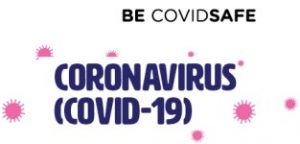
When the restrictions took place on 22th of March we had to stop our beloved karate training at our dojo for a while.
In accordance with QLD stage 1 restrictions we started back to limited training (outdoors) at our dojo car park from 15th of May, with allowing 10 people max, until 12 of June. Our karate training only focussed on basics and Kata. NO CONTACT!
Now we are excited to start with QLD stage 2 restrictions. We are still only allowing 10 people max inside the hall at all times (to allow for enough distance) and follow the recommended precautions to minimise the risk of transmission. This includes: hand washing before and after class, hand sanitiser available for use, social distancing, non-contact activities and more.
We are looking forward to welcoming you all back at our dojo from stage 3 on.
Our instructors have completed COVID-19 online training to ensure they are fully up to date with the protocol.

